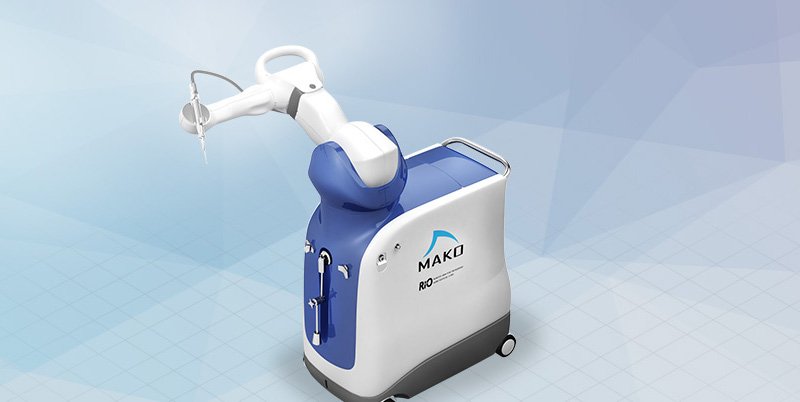Surgical Treatments
Hip Replacements
Total Hip Replacement (THR)
Total hip replacement is a surgical procedure in which the damaged cartilage and bone is removed from the hip joint and replaced with artificial components. The hip joint is one of the body's largest weight-bearing joints, located between the thigh bone (femur) and the pelvis (acetabulum).
For more information about Total Hip Replacement (THR), click on below tabs.
Revision Hip Replacement
Revision hip replacement is a complex surgical procedure in which all or part of a previously implanted hip-joint is replaced with a new artificial hip-joint. Total hip replacement surgery is an option to relieve severe arthritis pain that limits your daily activities.
For more information about Revision Hip Replacement, click on below tabs.
Robotic Assisted Partial Hip Surgery
Degenerative joint disease (DJD), a common cause of hip pain, is a chronic condition hampering the quality of life of affected individuals.
For more information about Robotic Assisted Partial Hip Surgery , click on below tabs.
Minimally Invasive Hip Replacement
The hip joint is one of the body's largest weight-bearing joints and is the point where the thigh bone (femur) and the pelvis (acetabulum) join. It is a ball and socket joint in which the head of the femur is the ball and the pelvic acetabulum forms the socket.
For more information about Minimally Invasive Hip Replacement,click on below tabs.
Posterior Hip Replacement
Posterior hip replacement is a minimally invasive hip surgery performed to replace the hip joint. It is also referred to as muscle sparing surgery because no muscles are cut to access the hip joint, enabling a quicker return to normal activity.
For more information about Posterior Hip Replacement ,click on below tabs.
Patient Specific Hip Options
MAKOPlasty Total Hip Replacement
Degenerative joint disease (DJD), a common cause of hip pain, is a chronic condition hampering the quality of life of affected individuals. There are different types of DJD and the most common ones include osteoarthritis (OA), post-traumatic arthritis, rheumatoid arthritis (RA), avascular necrosis (AVN), and hip dysplasia.
For more information about MAKOPlasty Total Hip Replacement ,click on below tabs.
Others
Core Decompression for Avascular Necrosis of the Hip
The hip joint is a ball and socket joint, where the head of the thigh bone (femur) articulates with the cavity (acetabulum) of the pelvic bone.
For more information about Core Decompression for Avascular Necrosis of the Hip,click on below tabs.
Health and Safety
Pre-Op and Post-Op Hip Guidelines
Planning for your hip surgery prepares you for the operation and helps to ensure a smooth surgery and easier recovery. Here are certain pre-operative and post-operative guidelines which will help you prepare for hip surgery.
For more information about Pre-Op and Post-Op Hip Guidelines,click on below tabs.
Caregivers Guide for the Hip
When your friend or loved one has undergone a hip replacement surgery, as a caregiver, you will play an important role in his/her recovery. There are various aspects you need to be aware of to ensure the safety, comfort and recovery of the patient.
For more information about Caregivers Guide for the Hip ,click on below tabs.
Hip Fracture Prevention
Hip fractures refer to any kind of breakage or damage in the thigh bone (femur). People over the age of 65, especially women, are highly vulnerable to hip fractures.
For more information about Hip Fracture Prevention ,click on below tabs.



























